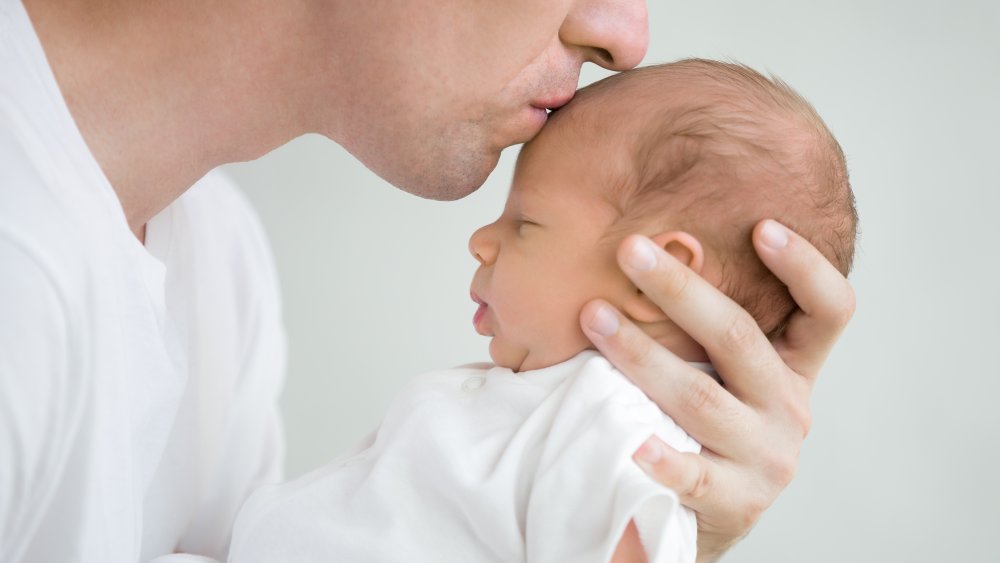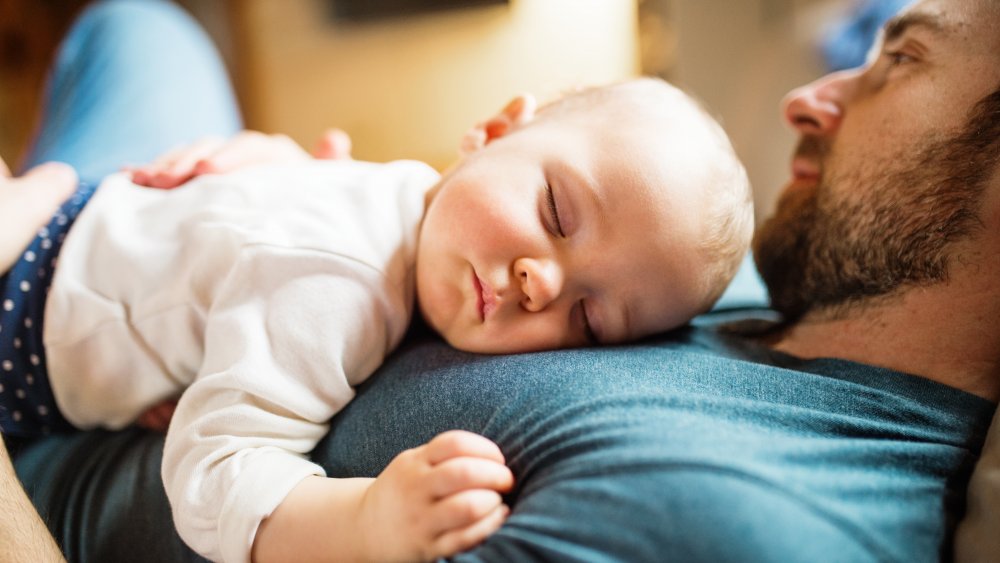New Fathers Have A Surprising Hormone On Board
When there's a new baby, you can expect significant hormone swings — for the mom. Her body is adjusting to no longer being pregnant, after all, after nine straight months of doing nothing else, and that sudden drop in estrogen and progesterone can lead to mood swings and other symptoms (via Parents). Meanwhile, the hormone prolactin takes over, fueling the new mama's ability to breastfeed. But, as it turns out, prolactin isn't just for the ladies; new fathers actually produce it, too. And a study recently published in Cell has concluded that this hormone is what transforms men into protective, nurturing parents.
Now before you get any ideas about sharing midnight nursing duties with your partner, understand that male prolactin does not produce actual breastmilk. However, this hormone is why the new daddy will gladly give his baby baths, feed a bottle, and speak in a soft, soothing voice. "Prolactin has historically been known for its role in lactation, but it's been a mystery why males even have this hormone," study co-author Dr. Kristina Smiley, from the University of Otago in New Zealand, told Lab+Life Scientist. Her research team concluded that prolactin makes males better dads by analyzing the parenting habits of male mice. When prolactin receptors in the male mice were blocked, they acted indifferently towards their pups. "You need prolactin in the brain for dads to be paternal," Smiley explained.
Increased prolactin isn't the only thing new moms and dads have in common
Not only do new moms and dads feel bonded with their babies due to the same hormone, they likely both feel disinterested in sex because of hormones as well. It's not just the fact that a 7-pound human emerged from a tiny part of your body that's making you averse to romance — it's a dip in estrogen. Conveniently, many men have a dip in the hormone testosterone right after baby arrives, which reduces their sex drive as well (via Motherly).
Of course, sleepless nights, spit-up stained nursing shirts, and those endless diaper changings probably aren't an aphrodisiac for either of the new parents. This dip in testosterone, unfortunately, also is linked to depression among new dads, so "the baby blues" are something the couple might share, too (per Psychology Today). Indeed, 10 percent of fathers of infants between the ages of three to six months show signs of depression, a study in the Journal of the American Medical Association found.
If either parent is experiencing signs of depression, they should seek help, said psychologist Scott Bea. "[T]here's nothing shameful about postpartum depression," he explained to Cleveland Clinic. "Fatherhood is a huge new job, with long hours and no pay, and society doesn't do a good enough job supporting men in this role."


